May 17, 2024 | 19:21 GMT +7
May 17, 2024 | 19:21 GMT +7
Hotline: 0913.378.918
May 17, 2024 | 19:21 GMT +7
Hotline: 0913.378.918
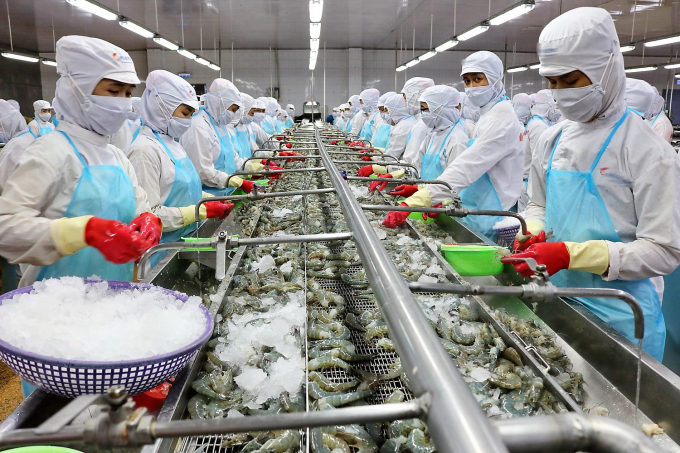
Shrimp processing for export.
Surely over the past development stage with unaccountable severe challenges, the country agriculture had achieved several huge achievements, creating great resonances on a global scale and forming a firm foundation for the country's sustainable growth.
However, it may sound nonsense to say that due to the special conditions, agriculture will cope with more severe challenges in the coming time despite existed immense results.
Looking back at the 35-year reform journey, it is not exaggerated to say that the very first half of the journey was the “period” of agriculture. According to statistics, in this period, agriculture, forestry, and fishery (briefly referred to as agriculture) recorded a remarkable growth of 3.78% per year, equaling 46.1% of the growth rate. Industry and service sectors are also "sublimated" with an increase of 8.22% per year.
In economic language, the time that we were eager to welcome two historical events including joining in the “common playground” WTO and APEC Hanoi 2007, former US Ambassador to Vietnam R.Burghardt said that, “some people still reminded over the past 20,25 years, Vietnam still be a rice importer country and it was unreasonable for a country boasting a giant rice granary in the Mekong Delta. The first achievement they achieved during the reform progress was to reverse that absurd situation and became one of the world's largest rice exporters. Next, they switched to developing other crops and became the world's leading coffee exporter…”.
Behind a series of the world’s best achievements in agricultural export, the statistic chain exploited from World Bank (WB) showed that it had a significant value in improving the farmers’ living. It is a “bunches of added value” of agriculture that expanded rapidly, reaching USD21.31 billion in 2010, 3.76 times higher than the time before Reform.
It was not just that, the special value of the Reform period was the results brought to people. Because, with about 25 million people lifted out of poverty in the first 20 years of Reform, Vietnam was considered by the world to be the one creating unprecedented successful poverty reduction program. Poverty decreased sharply from an estimated 70% of the population to only 20%. In the past 10 years, although agriculture has no longer maintained the above-mentioned growth rate, it has continued to reap resounding successes on a global scale.
According to the statistics, instead of 3.78% per year like the previous time, GDP of agriculture has been increasingly sloping down: from 2005 through 2020, only increased by 2.87% per year; the period 2010-2020, it only increased by 2.83% per year and the period of 2015-2020 was 2.54% per year. Even so, the WB's statistics show that, with an annual growth rate of 6.05% per year in the period 2010 - 2019, ranking 30th in the world in this indicator, the "basket of added value" of the agricultural sector of the country in 2019 was "amplified" to USD 36.55 billion, 1.8 times higher than 10 years ago, we have surpassed five countries with respectable agriculture in the world including Western Spain, Germany, Australia, Egypt, and the Philippines to thrive to 17th place in the world.
From another perspective, it can be affirmed that we have gained a high level of effective land exploitation and have made very rapid progress in this respect. WB’s statistics showed that the average added value on each hectare of agricultural land of Vietnam in 1998 reached USD 198, ranking 45th in the world, and 2018, it increased to USD 296 per ha, surpassing nine nations to the 36th ranking.
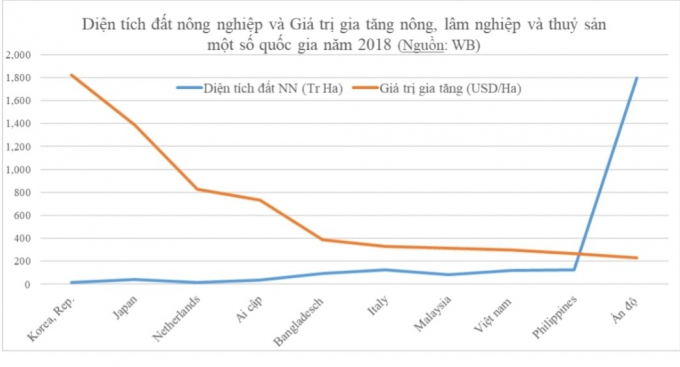
Although, the ranking did not tell anything to the level of effectiveness in agriculture land exploitation, as almost all countries have better results than those with fewer or a little agricultural land.
The aforementioned achievements are uncontroversial, however, in detail, the achievements have been "shrunk" a lot, which means that the actual results in the living of farmers have also been seriously reduced, the average employee in the 10 years 2009 - 2019 only increased from USD 904 to USD 1,313, corresponding to the world ranking, which also only increased from 148 to 139.
It means that although agriculture has so far achieved very proud achievements, the income of laborers in this area is still too modest compared to the world, so the life of the rural people in our country is certainly in a difficult situation to get better.
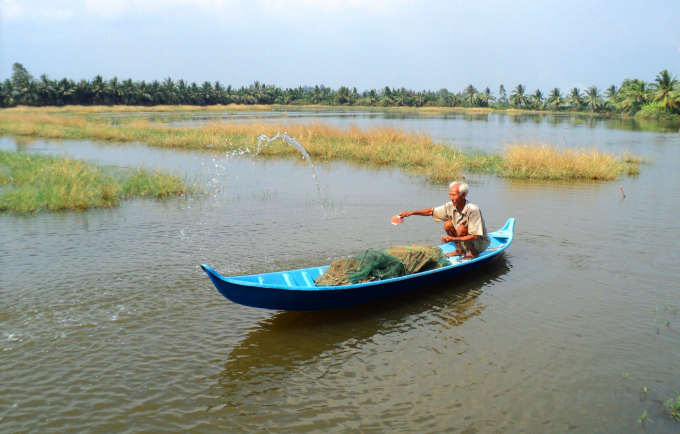
River Delta farmer. Photo: Le Hoang Vu.
The situation rooted in two main regions including:
First, the population in rural areas is still too crowded. The United Nations statistics show that with 61.2 million people 10 years ago, the rural population of our country ranked eighth in the world, while with the nearly unchanged number in 2019, this ranking is still "that huge”. This also means that, although our agriculture has made great achievements because the rural population is still too large, the standard of living cannot improve quickly.
Secondly, the country was in shortage of agricultural land resources. The statistics of the World Bank still show that, with just over 120,000 km square in recent years, the most important resource of this agricultural production of our country is only ranked 67th in the world.
In that condition, if calculated according to the average agricultural land per agricultural laborer or the average population in rural areas as mentioned above, our ranking will "free fall" to the bottom of the table. It's certainly not surprising. This also means that our agricultural production is small and our farmers probably took advantage of each tillage and the advantage of the tropical monsoon climate to expand production.
All the abovementioned information showed that together with the huge achievements gained over the past journey of development, the crowded rural population, the poor agricultural land, increased difficulty in remaining growth rate, the pressure to enhance the living of laborers and rural people are increasingly pent-up and more suppressed when they become too poor when we aim to achieve higher development goals in the coming years. That is an extremely difficult problem up next.
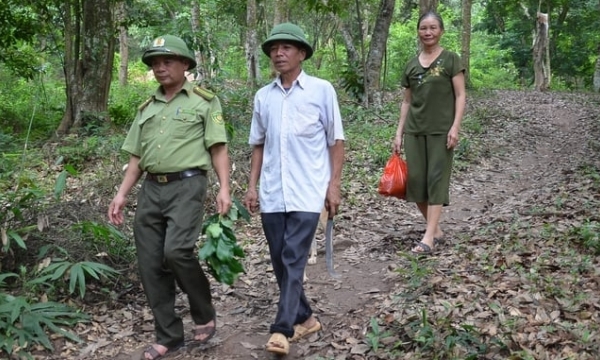
(VAN) This is a component in the project for 'Developing the multi-purpose value of the forest ecosystem in Bac Giang province until 2030, with a vision towards 2050'.
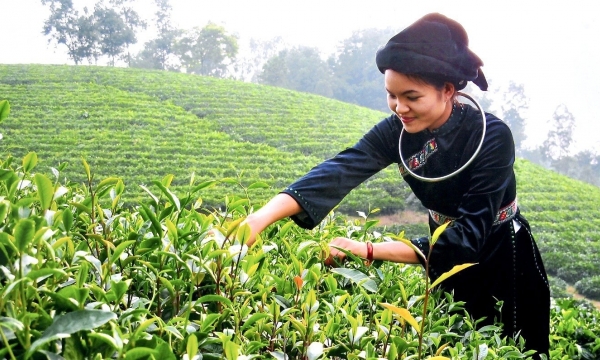
(VAN) As many as 9 typical industrial rural products of the North in 2024 of Thai Nguyen province are notable tea brands.
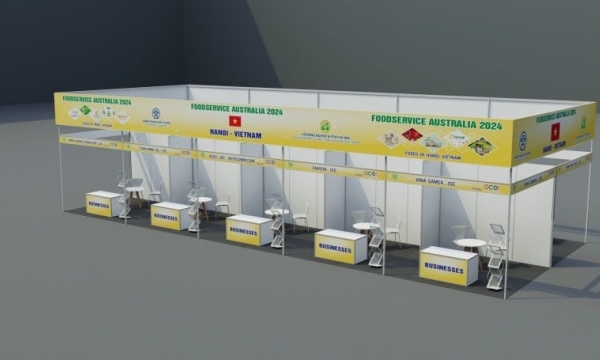
(VAN) The Hanoi Department of Agriculture and Rural Development, in collaboration with the Trade Office and the Vietnamese Embassy in Australia, arrange a trade promotion delegation to the Foodservice Australia 2024 Fair in Sydney.

(VAN) A group of students in Quang Tri built a project to green natural forests. The group has just planted 1,000 native trees such as ironwood, bullet wood, and chukrasia at Dakrong Nature Reserve.
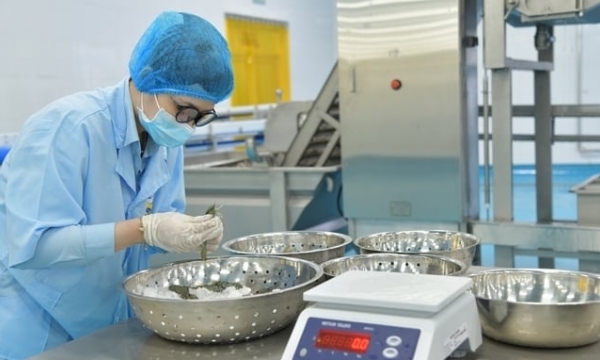
(VAN) This is the concluding remarks of Minister Le Minh Hoan, Head of the Steering Committee for Quality, Food Safety and Market Development, at the first meeting of the committee.
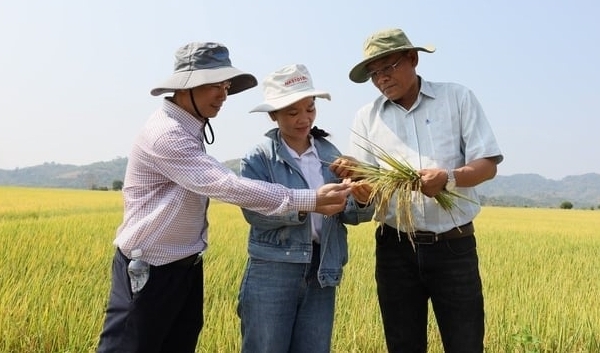
(VAN) The emission-reducing rice farming model in Dak Lak in the spring crop of 2024 helps reduce material costs by 10-15%, increase productivity by 30%, and reduce irrigation water by 50%.
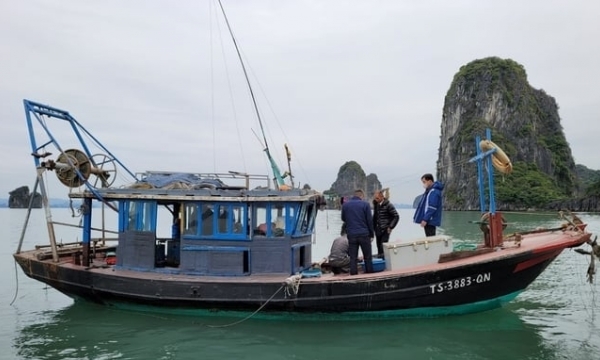
(VAN) Despite previously receiving an administrative penalty, Nguyen Van Tec continued to use electric shock devices on his fishing vessel to harvest fisheries resources in the core area of Ha Long Bay.